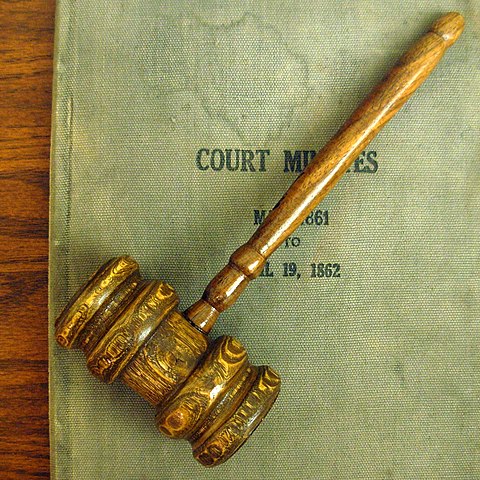Kansas
In Kansas, some members of the Catholic community have expressed concern that SB 79 could lead to interference in the operations of the Catholic Church. Elaborated Michael Sean Winters in a recent editorial, "if a group of parishioners decide they do not like their pastor and, having raised the money to build their church building, take the bishop to court asking for control of the church building, will the courts of Kansas say that the cannon law of the Church has no bearing on the case?" He continued, "after all, the current Code was signed by Pope John Paul II and the Vatican is a 'foreign jurisdiction.'"
Proponents of the SB 79 have repeatedly made assurances to the contrary; section 7 of the bill addresses such concerns, to a certain extent.
Oklahoma
In Oklahoma, another bill banning foreign law recently failed to pass. Senator Dan Newberry (R-Tulsa) authored Senate Bill 671, which prohibits foreign law from being practiced in Oklahoma courts. “Our legal code is much more than just a series of rules and procedures – it is the expression of our unifying principles,” said Newberry last week in an Oklahoma State Senate press release.
He continued, “our laws reflect our values and ideals, and those who embrace and wish to protect those values should be pleased by this bill’s passage. It’s simple - either you wish to see our law used to determine court rulings, or you think it’s appropriate for foreign law to excuse or justify crime in our state.”
In the end, SB 671 passed in the Senate, but was not heard in the House. Newberry expressed disappointment at that outcome, but vowed to reintroduce the bill next year. He suggested that the SB 671 is not discriminatory. "This bill says that no international or religious law can be used when deciding a court case in the state of Oklahoma. So it doesn't limit it to just sharīʿa law," he said.
Florida and elsewhere
In Florida, Senator Alan Hays (R-Umatilla) introduced SB 1360, which blocked foreign law; the latter bill failed to pass this March. However, Hays said that he will reintroduce a similar bill next year.
Bills prohibiting the practice of foreign law remain under consideration and could be theoretically passed in 2012 Michigan, North Carolina, Pennsylvania, and South Carolina.
In Kansas, some members of the Catholic community have expressed concern that SB 79 could lead to interference in the operations of the Catholic Church. Elaborated Michael Sean Winters in a recent editorial, "if a group of parishioners decide they do not like their pastor and, having raised the money to build their church building, take the bishop to court asking for control of the church building, will the courts of Kansas say that the cannon law of the Church has no bearing on the case?" He continued, "after all, the current Code was signed by Pope John Paul II and the Vatican is a 'foreign jurisdiction.'"
Proponents of the SB 79 have repeatedly made assurances to the contrary; section 7 of the bill addresses such concerns, to a certain extent.
Oklahoma
In Oklahoma, another bill banning foreign law recently failed to pass. Senator Dan Newberry (R-Tulsa) authored Senate Bill 671, which prohibits foreign law from being practiced in Oklahoma courts. “Our legal code is much more than just a series of rules and procedures – it is the expression of our unifying principles,” said Newberry last week in an Oklahoma State Senate press release.
He continued, “our laws reflect our values and ideals, and those who embrace and wish to protect those values should be pleased by this bill’s passage. It’s simple - either you wish to see our law used to determine court rulings, or you think it’s appropriate for foreign law to excuse or justify crime in our state.”
In the end, SB 671 passed in the Senate, but was not heard in the House. Newberry expressed disappointment at that outcome, but vowed to reintroduce the bill next year. He suggested that the SB 671 is not discriminatory. "This bill says that no international or religious law can be used when deciding a court case in the state of Oklahoma. So it doesn't limit it to just sharīʿa law," he said.
Florida and elsewhere
In Florida, Senator Alan Hays (R-Umatilla) introduced SB 1360, which blocked foreign law; the latter bill failed to pass this March. However, Hays said that he will reintroduce a similar bill next year.
Bills prohibiting the practice of foreign law remain under consideration and could be theoretically passed in 2012 Michigan, North Carolina, Pennsylvania, and South Carolina.











